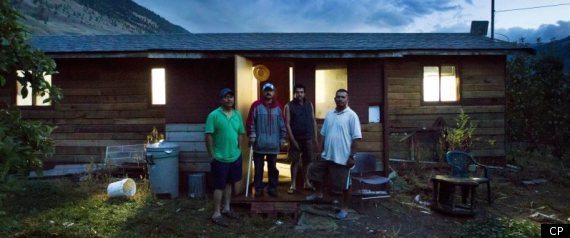Iran's Supreme Court has now confirmed the death sentence of Iranian-born web programmer Saeed Malekpour, a Canadian permanent resident. Malekpour was convicted of "crimes against Islam" and "spreading corruption on Earth" - which have emerged as classic trumped-up charges in the Iranian pattern of the criminalization of innocence. For supposedly creating pornography websites in Iran, Malekpour is set to receive the death penalty.
Malekpour maintains his innocence, insisting that image-uploading software he developed as a web programmer was used by an illicit site without his knowledge or consent. The international community spoke out against his death sentence when it was first handed down, and Iran moved to suspend it; however, with the escalation of rhetoric between the West and Iran - and the case disappearing from the radar screen - Malekpour is back on death row.
When he was first arbitrarily arrested in 2008 - while visiting his ailing father in Iran - Malekpour was taken to the notorious Evin prison in Iran, where he spent a year in brutal solitary confinement without charge, without access to legal representation or visitation. He subsequently "confessed" to his "crimes" on state television, a not unknown form of show trial.
Writing from prison, Malekpour says his initial confession to the charge had been "extracted under pressure, physical and psychological torture" as well as threats. He recounted in particular an instance when "interrogators stripped me while I was blindfolded and threatened to rape me with a bottle of water." He described his detention in similarly horrific terms: "While I remained blindfolded and handcuffed, several individuals armed with cables, batons, and their fists struck and punched me. At times, they would flog my head and neck."
It should be known that Iran has been on an execution binge. This past December, Amnesty International reported on the escalation of Iranian executions, even by wonton Iranian standards. Six hundred people were put to death between the beginning of 2011 and November alone. While many of these executions were for alleged drug-related crimes, this category, too, recently has become a catch-all for the suppression of dissidents.
According to Malekpour's family, the death sentence was reinstated under pressure from the Iranian Revolutionary Guard Corps (IRGC), which has emerged as the epicentre of Iran's four-fold threat to human rights, peace and international security: The IRGC plays a central role in Iran's domestic repression, international terrorism, incitement to genocide, and nuclear proliferation. Further, as the Iranian Human Rights Documentation Center at Yale University notes, the IRGC is responsible for the murder of political dissidents both inside and outside of Iran.
This case should serve as the wake-up call that the Canadian needs to sanction the IRGC and list it as a terrorist entity. The United States has already labelled it as a terrorist group, while the UN and EU have imposed various sanctions against the IRGC and its leaders. It is regrettable that Canada continues to dither with regard to listing it as a terrorist entity here in Canada.
I introduced legislation in this regard several years ago, and have called on the Canadian government to list the IRGC as a terrorist entity both in Question Period and during House debate. The Conservatives continue to respond that they need more time to study and consider the issue. Frankly, the IRGC's well-documented international criminality should have been evidence enough of the need for the Can-adian government to act. But Malekpour's case should prove the point beyond any doubt: The IRGC represents, and indeed embodies, the worst of the Iranian regime, including the targeting of Canadians.
The hope is that pressure from the international community may yet convince Iran to drop the false charges in this case and free Malekpour - allowing him to return to Canada. But however this case ends, the time has come to sanction the IRGC, and list it as a terrorist entity.
- Irwin Cotler is the Member of Parliament for Mount Royal and the former Minister of Justice and Attorney General of Canada. He is Chair of the Inter-Parliamentary Group for Human Rights in Iran, which has protested Malekpour's conviction and death sentence.
Original Article
Source: National Post
Author: Irwin Cotler 
















